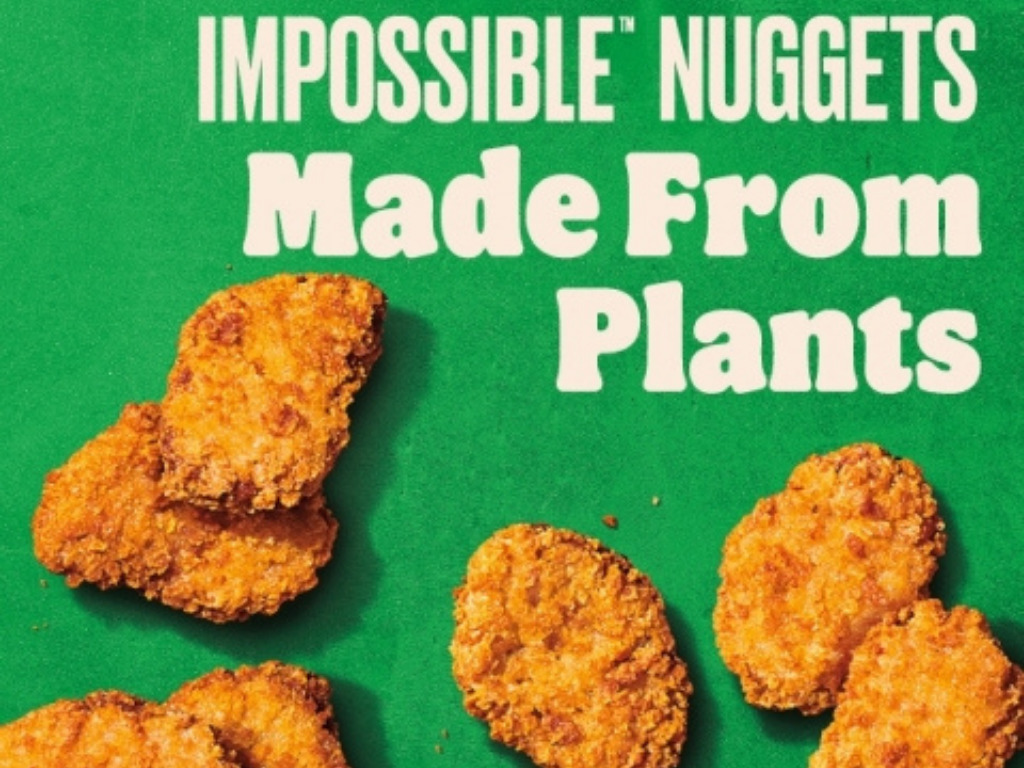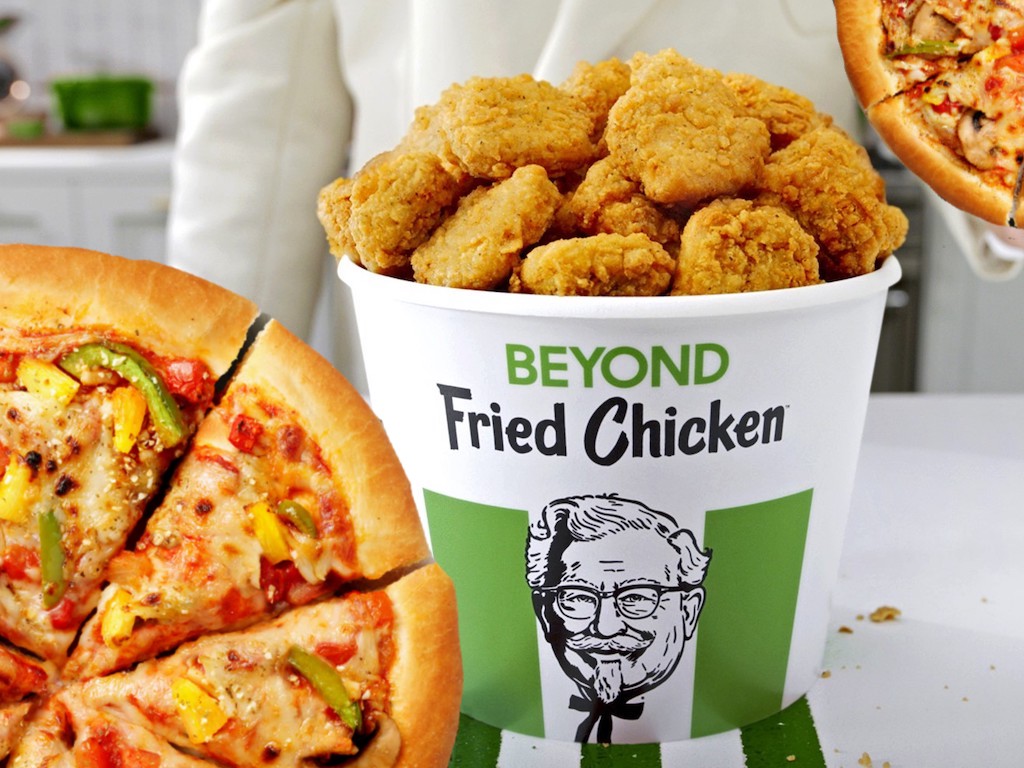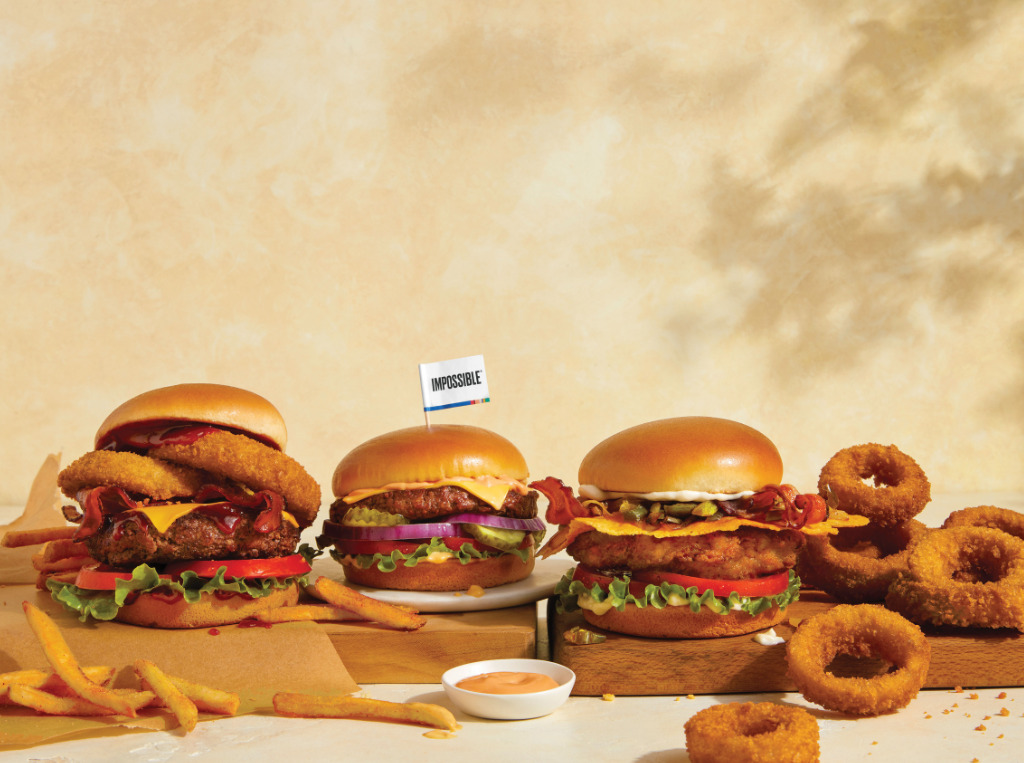From Burger King To IHOP, Impossible Foods Does Foodservice Collabs Right
5 Mins Read
Impossible Foods has partnered with IHOP on a range of menu items, expanding its US foodservice footprint. A leading plant-based meat company, Impossible has a knack for getting these collaborations with F&B chains just right – with multiple deals ongoing for years now.
Announced yesterday, the partnership with IHOP sees Impossible’s breakfast sausage and burger patties make it on the iconic US pancake diners’s menu at all of its almost 1,700 locations. It expands the alt-meat giant’s presence in restaurants and fast-food chains across the US – and globally, it claims to be on the menu of over 40,000 foodservice locations.
It brings to mind similar deals that Impossible has struck with fast food giants over the years, which – unlike many other alt-meat foodservice collaborations – are long-standing and still going strong.
Plant-based meat sector overview

Impossible occupies an interesting position amidst a somewhat precarious climate for plant-based meat, as the sector has faced media storm over the last couple of years after faltering sales, particularly in the US. Unlike its main competitor Beyond Meat, it’s not a public company, and so hasn’t experienced the same scrutiny – but it has still felt the effects.
The US plant-based sector has been hit hard by a combination of Covid-19 after-effects, supply chain disruptions, and the cost-of-living crisis. Investors are losing confidence, misinformation is rampant, and consumer adoption is at a 10-year low. Alt-meat companies in the US have ceased operations, filed for bankruptcy and laid off employees. Impossible itself has had two rounds of layoffs over the last 12 months, cutting 20% of its workforce (132 employees) in February, after a 6% cull last October.
According to industry think tank the Good Food Institute, all this turmoil has results in retail sales for plant-based meat flatlining in the US, while pound sales (as measured by weight) have decreased. And while the hospitality sector is still recovering from the pandemic-induced lockdowns, in the US, plant-based meat sales in foodservice reached an all-time high of $730M in 2022.
Speaking to AFN earlier this month, Impossible CEO Peter McGuinness agreed that the sector was facing significant challenges but said that the company’s retail performance was strong: “In the 52-week Nielsen [data], we’re still growing high single-digit, low double-digit in retail, which is great. We have a 50% repeat [purchase rate]… so every two people we get to try our product, one repeats, which is quite strong.” In January, the brand said its retail dollar sales grew by 50% in 2022.
Impossible’s foodservice success streak

He also “We have 15% household awareness – so 85% of the country hasn’t heard of us, and you can’t buy what you haven’t heard of,” McGuinness added. “We did our first ever marketing campaign in June and July, in 11 years. It takes time to build a brand, but awareness leads to trial; trial leads to repeat.”
But one thing that has helped grow awareness about the brand is its partnerships with some of the foodservice world’s biggest operators. McGuinness noted how well the Impossible’s collaborations in this space are going. And he’s right.
Impossible made a huge splash when it partnered with American chef David Chang’s Momofuku restaurant group in 2016 right out of the gate. It’s been seven years, and that link-up is still going (albeit in Chang’s other eateries). Similarly, it partnered with hamburger chain White Castle in September 2018 on the Impossible Slider and the two companies just celebrated their five-year anniversary.
Moreover, Impossible’s breakfast sausage has been on Starbucks menus in the US for four years now, and its partnership with Disney – which saw the alt-meat appear on restaurant menus across multiple Disneyland locations in the US – is three years strong now. One of the company’s major early foodservice wins, launching the Impossible Whopper at Burger King, is a four-year strong partnership.
Foodservice remains a bright spot for plant-based

This retention rate is impressive, especially when so many similar collaborations are short-lived. You only have to look as far as the world’s biggest food brand: McDonald’s, Of note, the partnerships Though it is much more successful in other countries, like the UK and Germany.)
While in Europe, Beyond Meat enjoys a successful partnership with McDonald’s that has seen both a UK and German trial go nationwide, and new markets launching consistently, stateside Beyond Meat’s fast-food partnerships track record is more spotty. The US McPlant launch was shorter-lived, with the trial ending last year owing to poor sales.
In 2021, the company announced a deal with Yum! Brands – the parent company of Pizza Hut, KFC and Taco Bell with Beyond Meat developping vegan chicken nuggets thatwere trialled and taken off the menu after a couple of months (they returned for another temporary period).
With Pizza Hut, the Beyond Italian Sausage Pan Pizza lasted barely a year before being withdrawn. Taco Bell had some teething issues with its Beyond Meat partnership too, but is now testing its pea-protein beef in the chain’s famous Crunchwrap. Then, there’s the discontinued team-up with Panda Express, which began selling Beyond Orange Chicken in the summer of 2021. It was brought back by popular demand last year but for a limited time as well. The Beyond Meat-Panda Express partnership was so popular with consumers that an online petition garnered over 4,000 signatures asking the companies to reintroduce the dish.
It’s not clear whether some of these partnerships were discontinued due to poor sales or for other reasons. Foodservice partnerships are undoubtedly complicated and require buy-in from multiple stakeholders to be successful, not to mention consumers have to support the campaigns.
Impossible’s latest IHOP announcement suggests the company is doing something right on the foodservice front, particularly as the latter is a bright spot for the plant-based category.
That being said, the plant-based category is an important one for restauranteurs. According to a report released last month by the Plant Based Foods Association (PBFA), 95% of foodservice operators in the United States anticipate either higher or consistent sales of vegan food and beverages in the coming year. Furthermore, 76% of them plan to maintain or expand their selection of plant-based meat alternatives.




